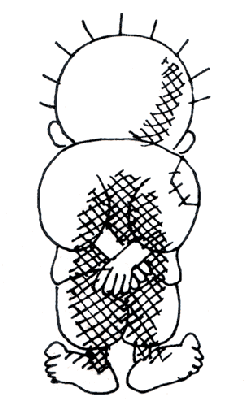Pathbreakers of Arab America—Suhel Nafar

By: John Mason / Arab America Contributing Writer
This is the eighty-fifth in Arab America’s series on American pathbreakers of Arab descent. The series features personalities from various fields, including entertainment, business, sports, science, the arts, academia, journalism, and politics. Our eighty-fifth pathbreaker is Suhel Nafar, a Palestinian musician, producer, and entrepreneur known for promoting Arab and North African music globally and as co-founder of DAM, the first Palestinian hip-hop band. Suhel is well known for empowering the voices of fellow Palestinians.
A major mover of Arab and North African music, Suhel Nafar, pivotal as a musician, producer, and entrepreneur
Suhel was born to Palestinian parents in Lod, a city about 25 miles from Jerusalem. While biodata on his early years are scarce, it is noted that he learned English early on by listening to such groups as ‘Dead Prez,’ ‘2Pac’ and ‘The Notorious B.I.G.’ These groups’ influence on Suhel, his brother Tamer and their friend Mahmoud Jreri, was so strong that in the in the late 1990s, they started the first Palestinian hip-hop group, DAM.
Growing up in occupied Palestine, Suhel recalls “listening to hip-hop and seeing music videos of artists being chased by police and feeling their oppression and their anger without knowing what they were talking about because I didn’t speak English — I felt they were talking about me.” Before coming to the U.S., he spent 20 years touring the world with DAM. Their lyrics focused on such issues as “inequality and oppression.” As a regional traveler, Suhel saw a need in the music market and is now working behind the scenes to fill it.
As a youth, Nafar had noted, “There aren’t enough of us, “Arabs, Muslims, brown people, and people of color in the music industry to support the artists in the region and around the world.” By 2013, Suhel moved to the United States, where at New York University, he became an artist in residence. In 2018, he began a three-year stint at Spotify, where he helped establish a place for West Asia (Arab) and North African (WANA) musical content.
As of 2021, Nafar became Vice President at Empire, in charge of Strategy & Market Development for the West Asia, North Africa, and Diaspora division (WANA). Empire Distribution, a leading independent label, distributor, and publisher in the U.S., is the first label to open a division here “to help grow the local scene in West Asia & North Africa and its diaspora.”

Initially, Nafar started working on videos, films, and other jobs that focused on artists in the WANA region, helping to coalesce its music potential. In leading the company’s expansion into the WANA region, which is rich with talent, Suhel suggests that the generation of musicians he is fostering in the WANA region can help heal “the wound inflicted by the conflicts there and their far-reaching repercussions.”
Suhel has promoted global music genres such as pop and hip-hop, adapted to WANA cultures as the ideal delivery system. The platform ‘Rajieen,’ for example, is a direct response to demand in the WANA region. It features 25 WANA artists in a video of song, reaching almost 10 million streams across all platforms. In his work at Empire, Suhel works closely with artists in developing a strategy for their individual labels.
In an interview with ‘Billboard,’ Nafar reveals a clear understanding of the impact music can have around the world. Underscoring impacts on the WAMA region, he cites at least four Arab female artists on Spotify’s Times Square billboard. “My team and I are supporting voices of females from Morocco, Palestine, Jordan, Egypt, and the diaspora.”
One male artist he cites, Maro, is a half-Lebanese, half-Ukrainian artist who speaks Arabic, English, French, Ukrainian, and Russian and can sing in every language. He was raised in Beirut, where he grew up playing guitar in the streets, but when violence erupted in Lebanon, he moved to Norway. From there, Suhel helped Maro move to the U.S.
An artist from Gaza is yet another singer Suhel helped—a hip hop rapper, MC Abdul: he’s “a 15-year-old kid from Gaza, a genius who started rapping when he was 9. He learned English from hip-hop and speaks it better than a lot of Americans I know. A few months ago, we finally got him out of Gaza and flew him and his dad to San Francisco on an artist visa. He performed an amazing show there for over 20,000 people. He was in the studio and taking meetings to start his album rollout and was supposed to come back to Gaza [a few] weeks ago. Then the whole situation started, so he couldn’t go back to his family.”
Another artist Suhel supported is Soulja, a rapper from Sudan. He describes how he helped him: “When the war in Sudan happened, we had to help him escape from Sudan to Egypt, and now he’s in Saudi Arabia. His recent release, ‘“Ayam,’ is a breakup song where he’s telling his love he doesn’t want to see her anymore, but his love is actually Sudan. He wrote it the day he escaped and was almost killed.”
Nafar’s support for his fellow Palestinians—profound and important: the role of ‘Handala’
Suhel learned of the symbol of ‘Handala’ from a group of children who attended one of his music and film workshops, conducted in impoverished neighborhoods and refugee camps in Palestine. Handala is an illustration, a national symbol of the Palestinian people, a national personification of a state or the people it inhabits, appearing in political cartoons and propaganda. The character was created in 1969 by political cartoonist Naji al-Ali, and first took its current form in 1973. Handala became the signature of his cartoons and remains an iconic symbol of Palestinian identity and defiance.

The character ‘Handala,’ created in 1969 by political cartoonist Naji al-Ali, is a national symbol of the Palestinian people, an iconic symbol of Palestinian identity and defiance.
The character has been described as “portraying war, resistance, and the Palestinian identity with astounding clarity”. The name comes from the Arabic word for the colocynth (Arabic: حنظل), a perennial plant native to the Levant “which bears bitter fruit, grows back when cut, and has deep roots.”
Handala’s impact has continued in the decades after al-Ali’s 1987 assassination; today the character remains widely popular as a representative of the Palestinian people and is found on numerous walls and buildings throughout the West Bank (notably as West Bank Wall graffiti art), Gaza and other Palestinian refugee camps, and as a popular tattoo and jewelry motif. It has also been used by movements such as Boycott, Divestment and Sanctions and the Iranian Green Movement.
In a ‘Poor News Magazine-Hard Knock Radio’ interview, Suhel discusses the part he believes music plays in resistance and empowering the Palestinian voice. It depicts his dedication to “breaking down cultural and political barriers, amplifying voices that reveal the richness and challenges of life across the Arab world, particularly under occupation in Palestine.”
The interview came just before the November 2 screening of ‘Slingshot Hip Hop’ at the Arab Film Festival. This groundbreaking documentary traces the rise of Palestinian hip-hop in the early 2000s, showcasing how youth use the art form to speak out against oppression. Suhel describes the film as both a cultural chronicle and a powerful history, capturing “the angst, the determination, and the resilience of folks who find solace in hip-hop.” The documentary resonates with today’s generation facing ongoing struggles in Gaza and the West Bank, highlighting the role of hip-hop as a force of resilience and resistance.
Reflecting on the political climate in the ‘Hard Knock Radio’ interview, Suhel addresses attempts to silence voices in the Palestinian diaspora, from social media shadow-banning to direct censorship. Yet, he emphasizes, “You can try, but you can’t ever kill a moving culture, a movement.” This dedication is evident in Empire’s commitment to supporting diverse Arab voices, with over 40% of their releases now featuring female artists.
Suhel sees hip-hop as playing a unique role, as both a protest tool and a lifeline for Arab youth facing intense social and political challenges. His work continues to empower a new generation of artists who, despite political barriers, remain undeterred in using hip-hop to speak their truths.” Additionally, Suhel is devoted to marginalized communities in general, “those who are continuously targeted by systemic injustice.”
Music can be a powerful tool in addressing injustice—Suhel Nafar has demonstrated this dramatically.
Sources:
“Suhel Nafar,” Everybody Wiki Bios, 2/22/2024
“Suhel Nafar is on a mission to put Middle Eastern & North African artists on a global stage,” Billboard, 11/18/2023
“Beats of Resistance: Suhel Nafar on Empowering Arab Hip-Hop and the Power of Palestinian Voices,” Poor News Magazine, Hard Knock Radio 11/1/2024
John Mason, Ph.D., focuses on Arab culture, society, and history and is the author of LEFT-HANDED IN AN ISLAMIC WORLD: An Anthropologist’s Journey into the Middle East, New Academia Publishing, 2017. HJohn Mason, Ph.D., focuses on Arab culture, society, and history and is the author of LEFT-HANDED IN AN ISLAMIC WORLD: An Anthropologist’s Journey into the Middle East, New Academia Publishing, 2017. He has taught at the University of Libya, Benghazi, Rennselaer Polytechnic Institute in New York, and the American University in Cairo; John served with the United Nations in Tripoli, Libya, and consulted extensively on socioeconomic and political development for USAID and the World Bank in 65 countries.
The views and opinions expressed in this article are those of the author and do not necessarily reflect the position of Arab America. The reproduction of this article is permissible with proper credit to Arab America and the author.
Want more articles like this? Sign up for our e-newsletter!
Check out our blog here!








